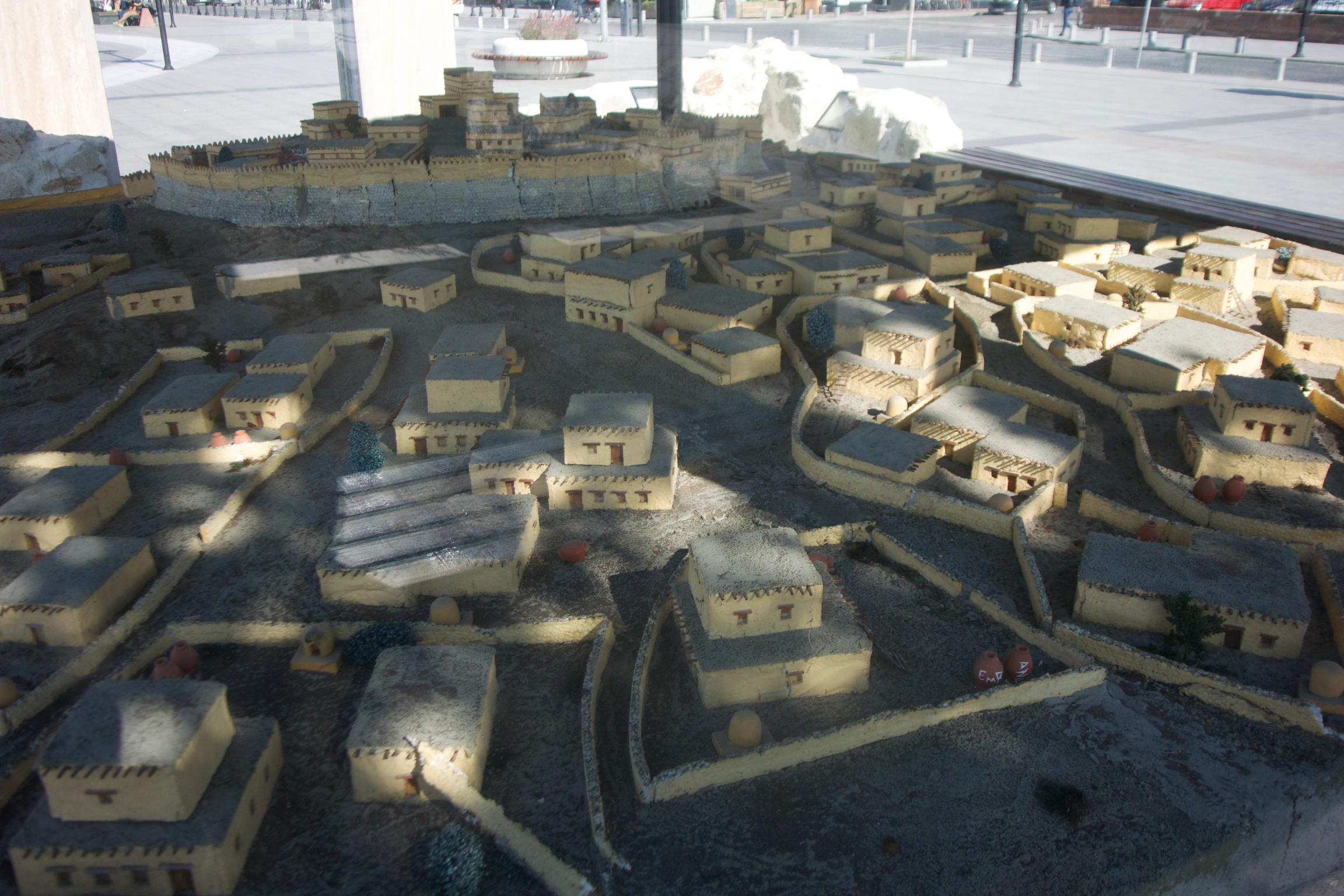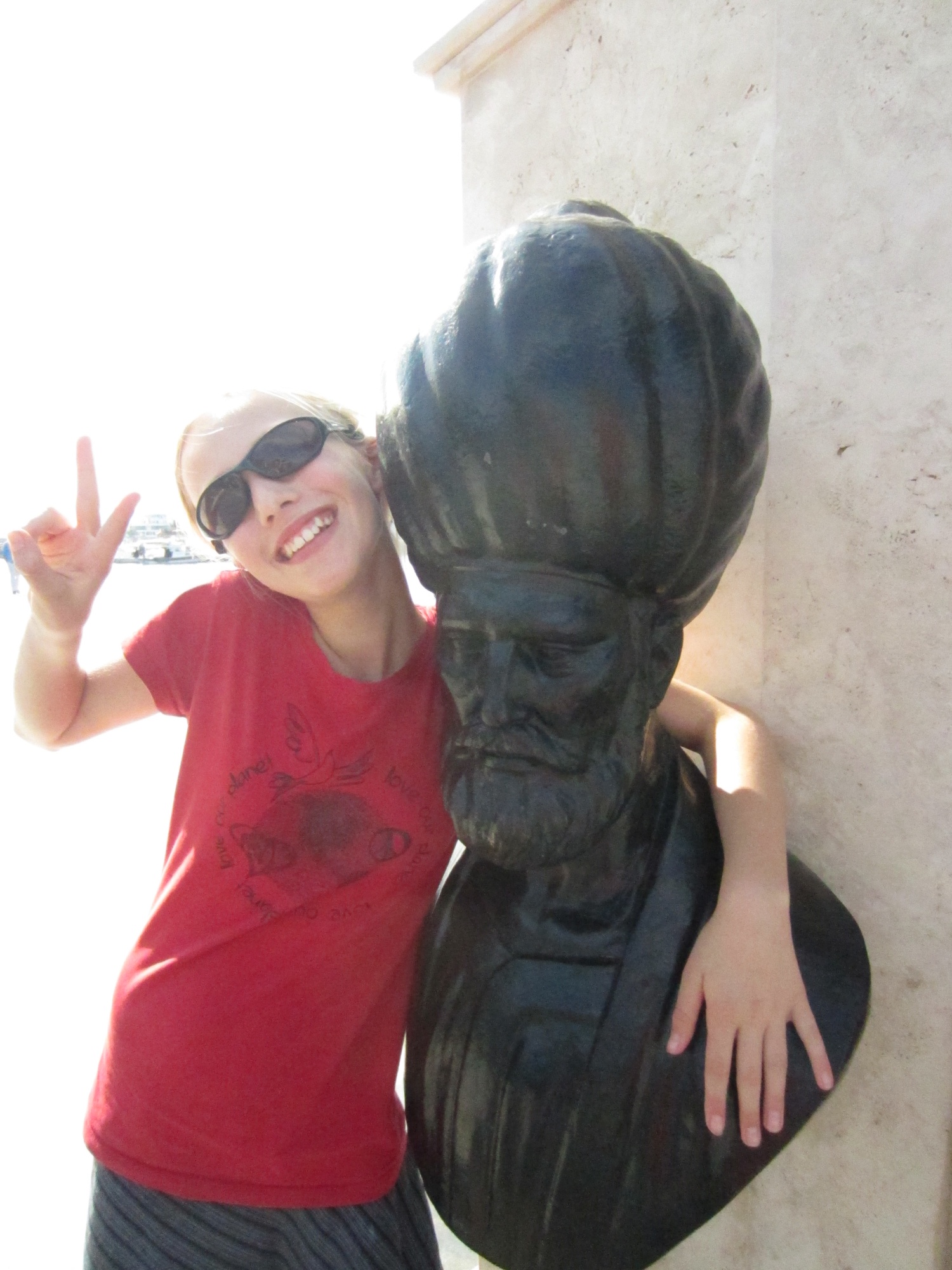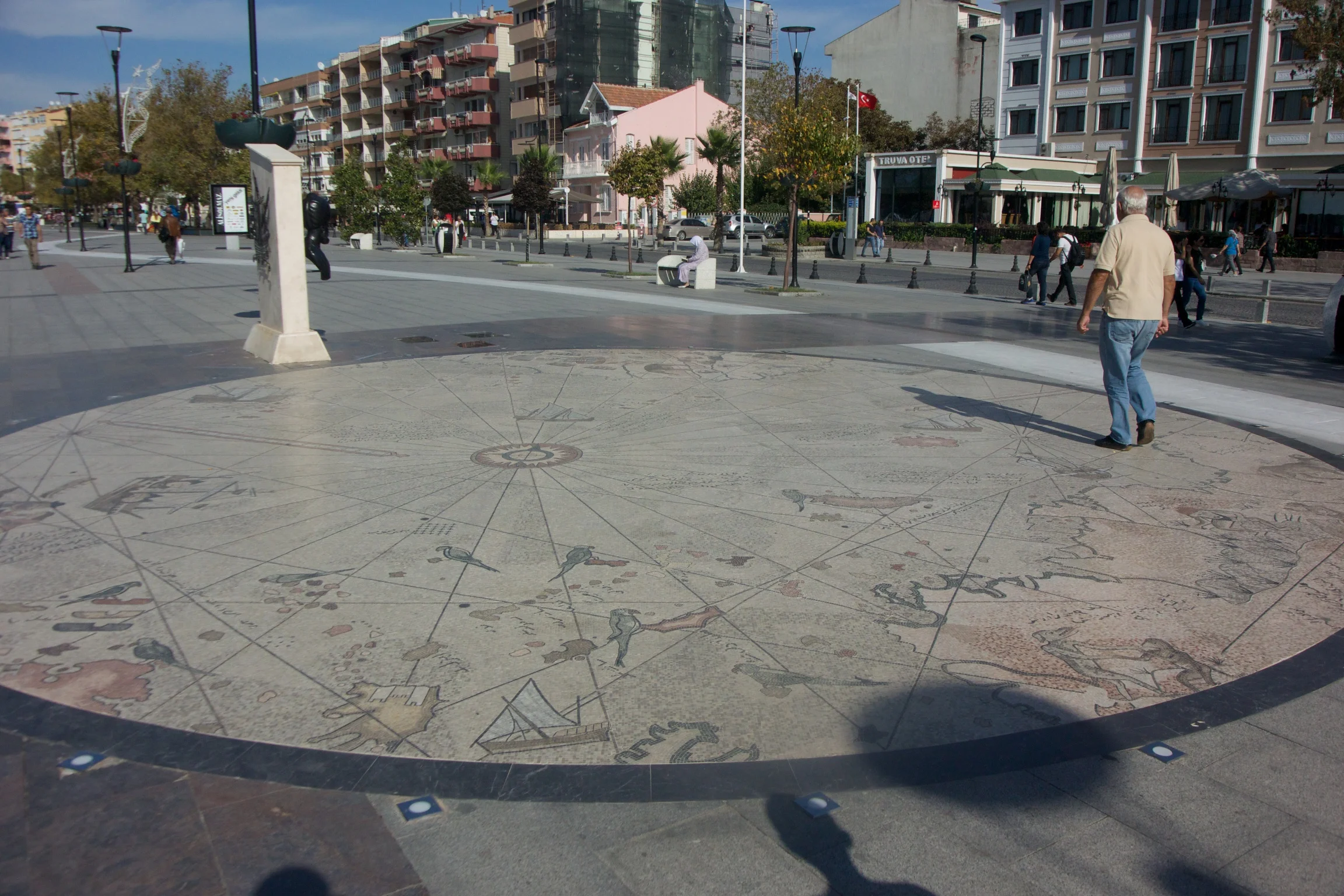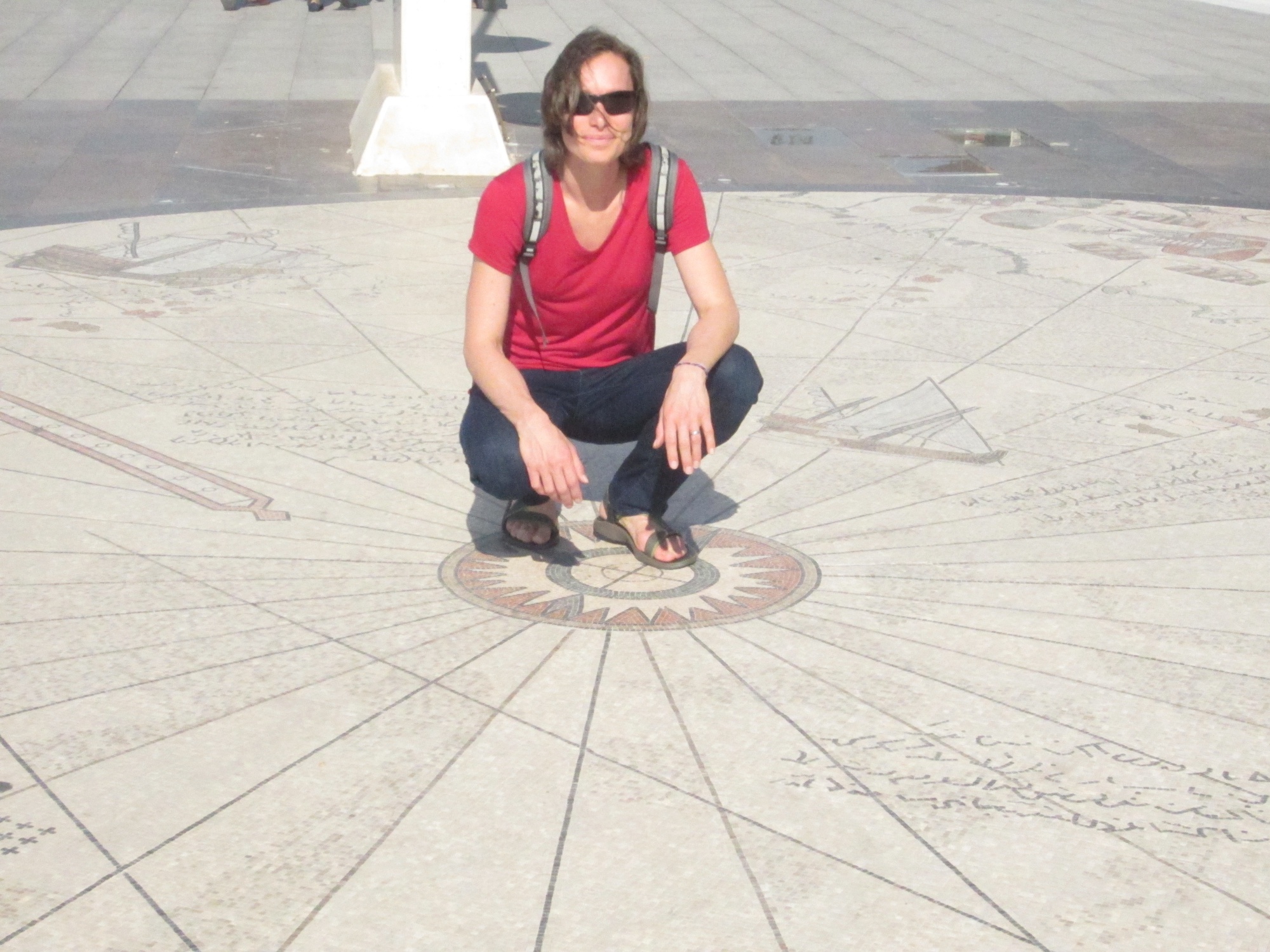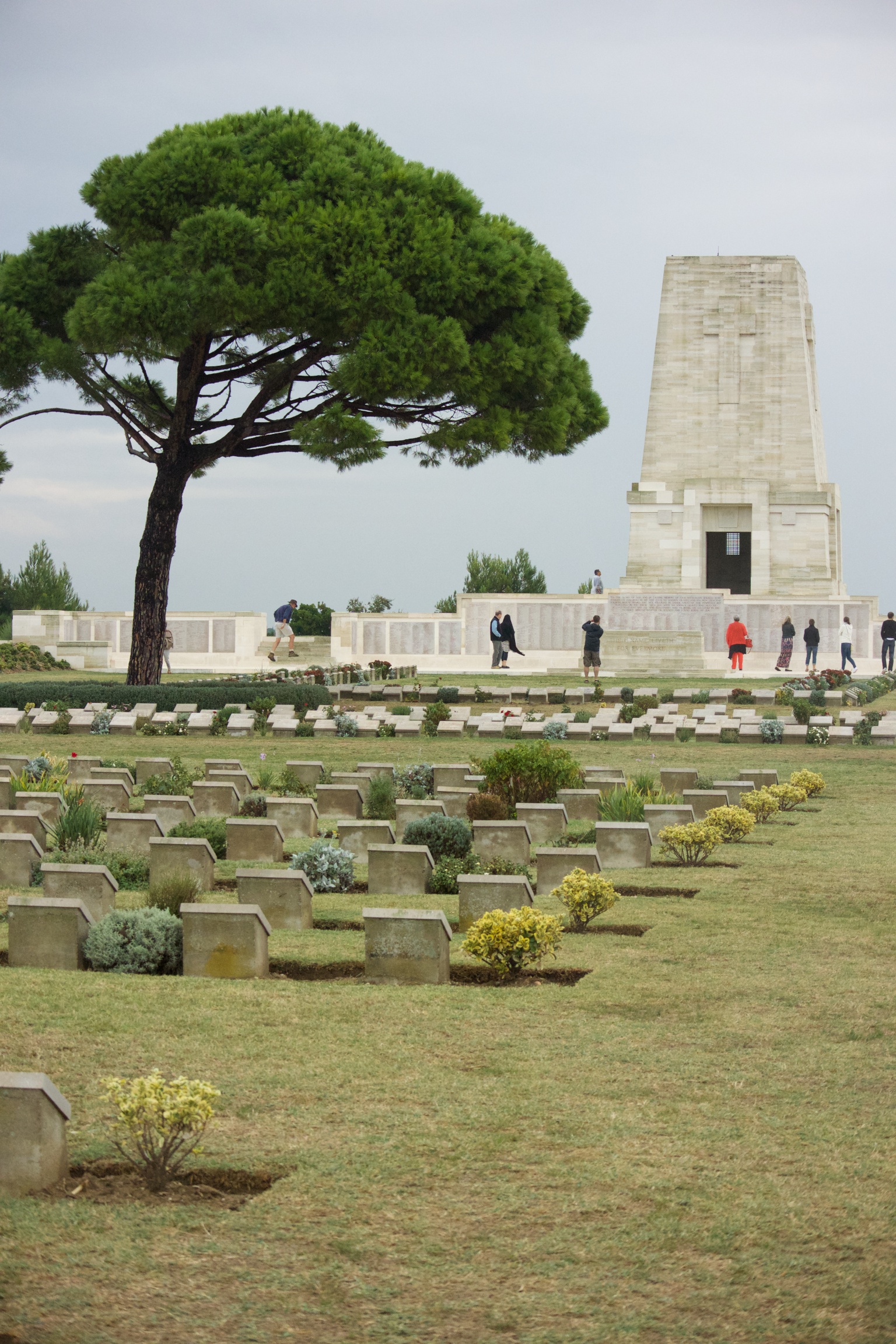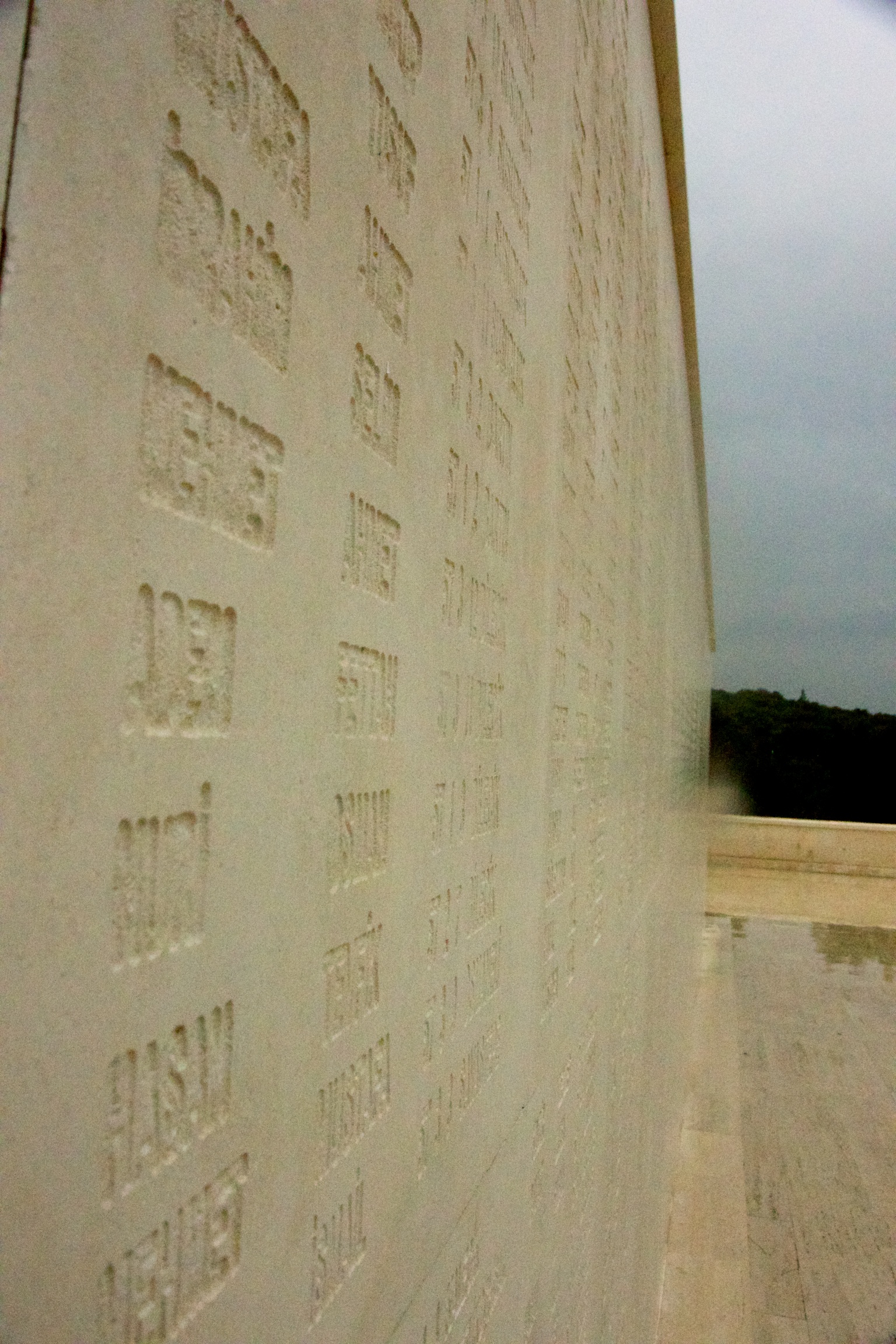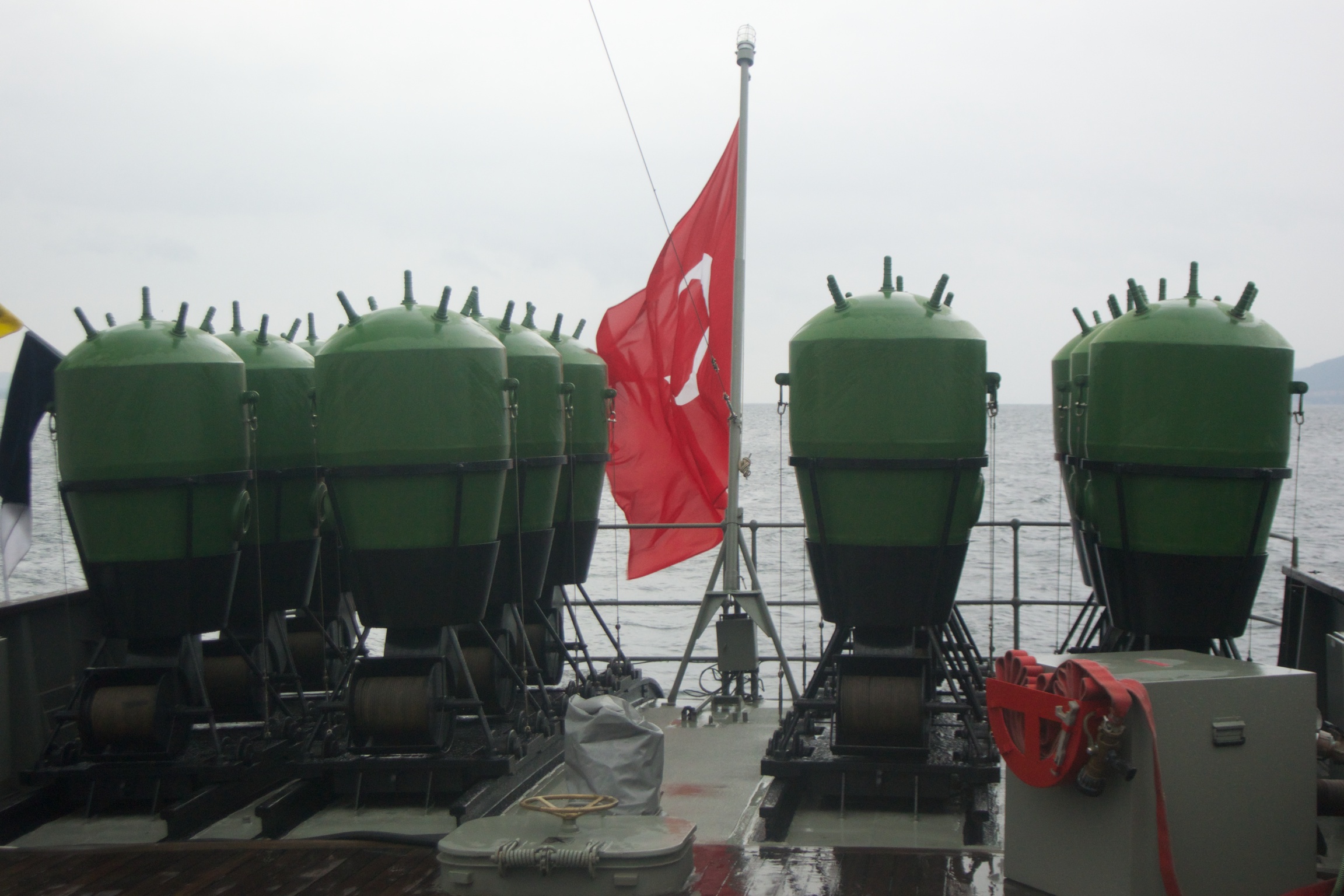We recently enjoyed three nights in the town of Canakkale (pronounced "Cha-nak-kah-leh", with an "cedi" on the first C, natch).
Canakkale is on the Dardanelles, the waterway that connects the Mediterranean and Aegean Seas with the Sea of Marmara and then the Black Sea (via the Bosphorous at Istanbul). It is a much smaller and calmer city than Istanbul, which worked well since the kids were ready for a break.
Historically, Canakkale is notable for two wars:
1. The Trojan War as described in Homer's Iliad and as seen on TV.
Unfortunately, because the weather was wet, we didn't make it out to the actual site of ancient Troy. Instead, we went to the Canakkale Archaeology Museum, which houses a number of the artifacts that weren't looted by the Russians. For a long time, academics believed that the battle of Troy was merely part of the vast volumes of Greek mythology, what with its interplay of gods, beauty-pageant goddesses and muscled heroes who wouldn't look of place in a modern WWE contest. But excavations by Indiana Jones type treasure hunters and later more careful academics fond that there were actually seven Troys, all piled upon one another like so many layers of historical sediment.
Was there actually a Trojan horse? Sure! I've seen several around here (see the photos).
2. The Gallipoli Campaign of World War 1 in which the Ottoman Empire successfully defended Turkey from an invasion by the combined forces of the British, French, Australian, New Zealand and Newfoundland (then a British territory).
We did, however, manage to take a rainy-afternoon tour of some of the WWI cemetery sites on the Gallipoli Peninsula. Our tour guide was extremely knowledgeable, although he had a puzzling way of inserting a rhetorical question into every sentence: "The ANZAC soldiers were pushing up the hill. To where? To the Turkish positions ....".
As he explained, the conditions were brutal for the soldiers on both sides: mud, heat, awful (even by British standards) food, lack of drinking water, lice, extreme cold and frostbite, and of course, intense machine gun fire and shelling -- often between soldiers hunkered down in trenches that were 20 metres apart. Nearly a hundred thousand soldiers -- some say more -- died during the nine months of this battle. Their names are now engraved in dozens of Turkish and Allied memorials throughout the peninsula.
The guide was fairly even-handed in how he told the story, which would be tricky given the significance of the battles for the Turkish people and for the thousands of Aussies and Kiwis who make a pilgrimage here to pay their respects.
The best moment of the day, however, was watching an Aussie tourist taking photos with a group of Turkish students. It made me wonder if their ancestors who fought here would have ever imagined a time, just two generations later, when their descendants would be shooting selfies instead of each other. And if today's soldiers could imagine this, would they still fight?
As our tour guide might say, "May all wars become what? ....Ancient history."



